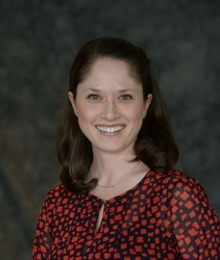S. Structural Change in Public Education Policy and Social Change Lab
Course Information
- Course Number
- L8016-SEM
- Curriculum Level
- Upperclass
- Areas of Study
- Administrative Law and Public Policy, Interdisciplinary Legal Studies, Leadership, Legal Profession and Professional Responsibility, Racial, Economic, and Social Justice
- Type
- Seminar
- Additional Attributes
- Experiential Credit
Section 001 Information
Instructor
 James S. Liebman
Simon H. Rifkind Professor of Law
James S. Liebman
Simon H. Rifkind Professor of Law
 Elizabeth M Chu
Executive Director
Elizabeth M Chu
Executive Director
Section Description
The Structural Change in Public Education Policy and Social Change Lab is an interdisciplinary program that combines a research and consulting project, an academic seminar on structural change in public education, professional skills development, and career and networking support. Through their participation in CPRL, students have the opportunity to work with a cohort of talented and committed upper-level graduate students from Columbia, Howard, Michigan, NYU, Penn, Vanderbilt, University of California (Berkeley, Irvine, Los Angeles), and elsewhere. This program has two main course components, one class-based and the other project-based:
1. A comprehensive seminar in the design, governance, regulation, democratic accountability, and systematic transformation of PK-12 school systems and allied public- and social- sector organizations. A central task of the classroom portion of the CPRL program is to provide a conceptual framework for achieving fundamental change and improvement in how public school systems serve students and families. This framework, which we call Evolutionary Learning or Democratic Experimentalism, consists of three lenses on public education. The first, overarching lens is equity: how to achieve the fundamental changes needed to assure that school systems understand and meet the needs of each student, especially students of color, in poverty, or otherwise underserved. Our second lens is what we call governance: how public school systems and other organizations go about deciding what substantive policies to implement in given circumstances and how to implement those policies and improve them over time. Our third lens is democracy: how and to what extent public systems enable their client populations, ground-level staff, and other stakeholders to participate meaningfully in making, carrying out, and evaluating substantive decisions.
2. A high-priority, professionally-guided research or advocacy project on which an interdisciplinary team of graduate students provides research, design, strategic planning, and/or implementation support on matters that combine management, policy, governance, legal, regulatory, and/or technological issues crucial to the mission of a major education sector client organization, typically, a state department of education, school district, charter school organization, school-support or advocacy group, philanthropy, or other non-profit serving children.
Much of the class component is front-loaded in the semester to prepare students and give them, their teams, and their CPRL team leaders time to conduct client-focused project work, including by interfacing with clients throughout the U.S. Team assignments are based on student preferences and skills as well as client needs. CPRL covers expenses when projects involve site visits and travel.
The course is taught by an accomplished team of professionals. Research and advocacy projects are guided by a team of experienced directors employed full-time by CPRL who bring extensive experience in PK-12 education, law, management consulting, and other professional endeavors.
RSVP to an info session and apply at cprl.law.columbia.edu/content/how-apply
- School Year & Semester
- Spring 2025
- Location
- WJWH 416
- Schedule
-
Class meets on
- Monday
- Tuesday
- Wednesday
- Thursday
- Friday
- Points
- 5
- Method of Evaluation
- Other
- J.D Writing Credit?
- Minor (automatic)
- Major (only upon consultation)
- LLM Writing Project
- Automatic
Learning Outcomes
- Primary
-
- Students acquire a working knowledge of, and take part in, the important current debates involving the reform and restructuring of PK-12 education and educational institutions in the United States.
- Students understand how existing PK-12 educational systems in the United States, and the new structures under construction as part of the new PK-12 reforms mirror and deviate from important structural, regulatory and administrative models.
- Students learn to work effectively in interdisciplinary teams to solve multi-dimensional problems using problem-solving structures that will contribute to their success in all professional settings, whether in the private, public or social sectors.
- Students are exposed to skilled leaders and middle managers, and gain access to employment opportunities, in the new public organizations engaged in PK-12 problem-solving and restructuring.
- Working in cross-professional teams, students gain substantial exposure to the problem-solving activity of transforming public- and social-sector organizations and generate consequential, timely, high-priority, market-quality products for their clients.
Course Limitations
- Instructor Pre-requisites
- None
- Instructor Co-Requisites
- None
- Requires Permission
- Yes
- Recommended Courses
- None
- Other Limitations
- NOTE: Enrollment is for the equivalent of a full semester's worth of credit -- 13 total units of credit/semester. See Course description for information on how to apply.